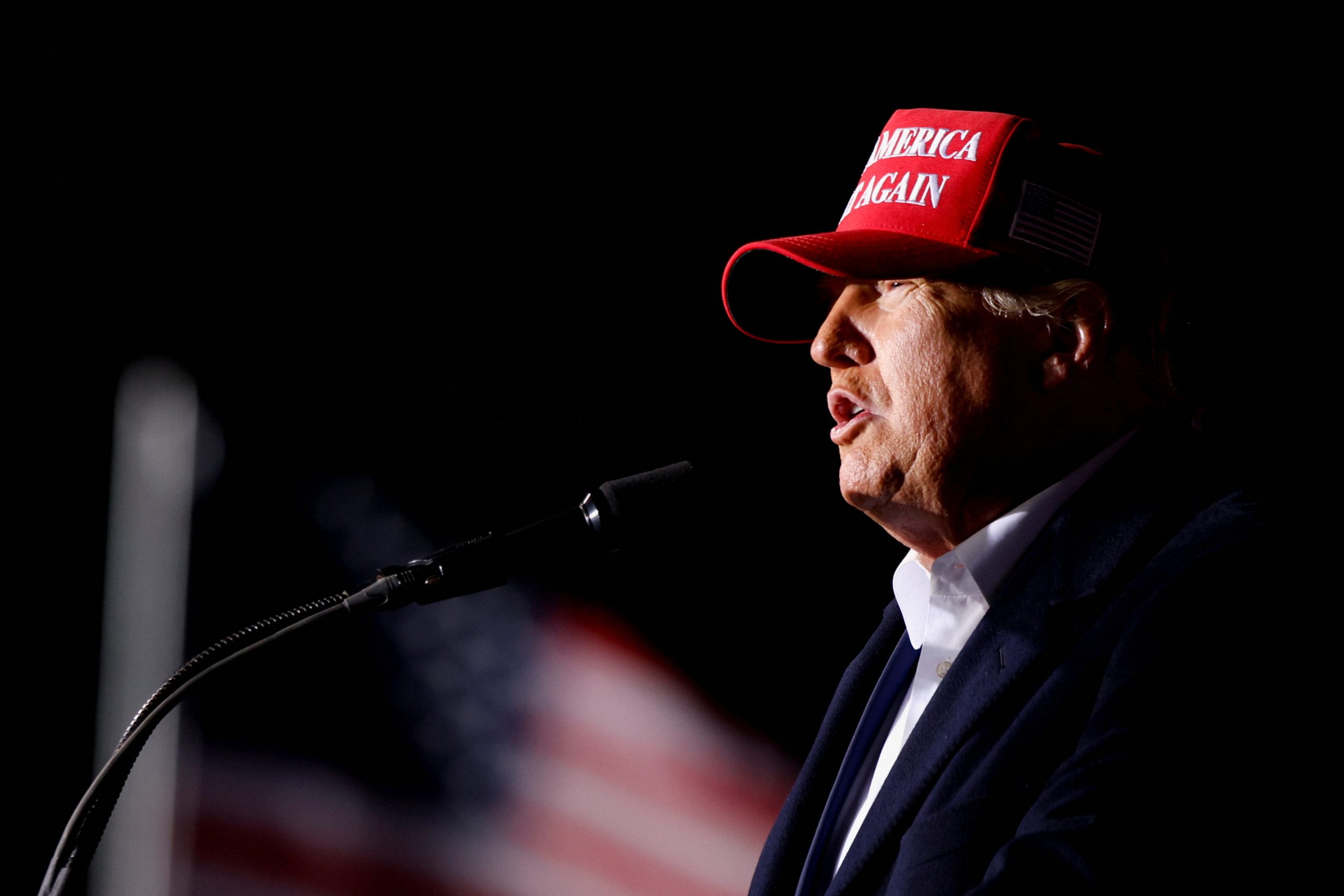
[elfsight_social_share_buttons id=”1″]
Former U.S. President Donald Trump will swing through New Hampshire and South Carolina on Saturday in the first two stops of a presidential campaign that has largely idled since he launched his new White House bid in November.
Trump will speak first at the New Hampshire Republican Party’s annual meeting in Salem before heading to Columbia, South Carolina’s capital, where he will unveil his leadership team in the state.
Both states are seen as potential kingmakers, as they are among the first to hold their nominating contests. How a candidate performs there often makes or breaks their campaign.
Political observers in both the Republican and Democratic parties will be keenly watching to see who shows up to support Trump at the events.
Once the undisputed center of gravity in the Republican Party, an increasing number of elected officials have expressed concerns about his ability to beat Democratic President Joe Biden, if he decides to run again, as is widely expected.
Rob Godfrey, a Columbia-based political strategist, said many Republicans are holding off on a Trump endorsement because of the wide range of possible candidates who could run for the party’s nomination.
“I think there are a fair number of people that are keeping their powder dry because there’s such a deep bench for Republicans this year,” he said.
In New Hampshire, Republican Governor Chris Sununu has said he is having conversations about a primary bid, and many high-ranking Republicans there – including those who supported Trump previously – say publicly they are looking for an alternative.
In South Carolina, where Trump will appear alongside Governor Henry McMaster and Senator Lindsey Graham, there will be a number of conspicuous absences.
Among those not attending are the state party chairman, at least three Republican U.S. representatives from the state and South Carolina U.S. Senator Tim Scott, who has himself been floated as a potential Republican presidential candidate. Scott and others have cited scheduling conflicts.
Several Republican state lawmakers decided against attending after failing to gain assurances from Trump’s team that doing so would not be considered an endorsement, according to a person with knowledge of the planning.
“You know, there’s a lot of remaining appetite for Trump, and I think a lot of people still believe that Trump is being treated unfairly,” said Reese Boyd III, a Republican official from the Myrtle Beach area.
“But you also see that softening from some groups.”
To be sure, Trump retains a significant base of support, particularly among the grassroots. While he loses in some head-to-head polls against Florida Governor Ron DeSantis, another potential competitor, he wins by significant margins when poll respondents are presented with a broader field of options.
Since launching his campaign in November, Trump has maintained a relatively low profile. He called multiple conservative Republicans in the U.S. House of Representatives in early January to persuade them to vote for Kevin McCarthy, an ally, for the new Speaker.
Most brushed off his entreaties, though McCarthy was elected to the position after a bruising battle.
As with previous events, many Republicans will be looking at whether Trump offers a forward-looking vision or instead retreads claims that the 2020 election was stolen from him.
The latter opinion has proven unpopular with independent voters, and political analysts say it was a factor in the Republicans’ underwhelming performance in the November congressional midterm elections.
Copyright 2023 Thomson/Reuters
